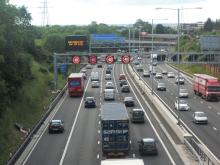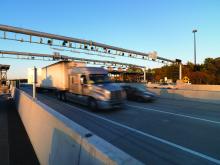There is no doubt that 2016 has seen some of the biggest political upheavals in recent times: The UK’s decision to leave the EU, America electing a non-politician – namely Donald Trump – as its president, an attempted coup in Turkey, Brazil’s president impeached… the list goes on.

There is no doubt that 2016 has seen some of the biggest political upheavals in recent times: The UK’s decision to leave the EU, America electing a non-politician – namely Donald Trump – as its president, an attempted coup in Turkey, Brazil’s president impeached… the list goes on.
For government departments, both national and local, the uncertainty this causes throws any non-committed spend into jeopardy and virtually paralyses the planning process while political direction, priorities and budgets are agreed. In the case of the UK and the EU (where France, Germany, Hungary and Slovenia have presidential elections and the Netherlands has a general election), this uncertainty could last years, not months.
The timing of such momentous upheavals could not be worse for the transport sector which is seeing its own ‘revolution’ in terms of increasing urbanisation and new travel options such as Mobility as a Service, along with technology changes like autonomous vehicles. For all those reasons and more, 2017 is going to be a particularly uncertain and challenging year for the global transportation sector.
But one thing remains certain; that people and goods will still need to travel and be transported efficiently. That fundamental necessity, along with a moral imperative to reduce the number of fatalities on the roads and railways, underpins everything the sector does and strives to achieve.
Those basic principles are unerring and do not change, regardless of which way the political winds are blowing. While the near future may be administratively difficult, focusing on those fundamental principles and ultimate goals will, perhaps, make those choppy waters a little easier to navigate.
For government departments, both national and local, the uncertainty this causes throws any non-committed spend into jeopardy and virtually paralyses the planning process while political direction, priorities and budgets are agreed. In the case of the UK and the EU (where France, Germany, Hungary and Slovenia have presidential elections and the Netherlands has a general election), this uncertainty could last years, not months.
The timing of such momentous upheavals could not be worse for the transport sector which is seeing its own ‘revolution’ in terms of increasing urbanisation and new travel options such as Mobility as a Service, along with technology changes like autonomous vehicles. For all those reasons and more, 2017 is going to be a particularly uncertain and challenging year for the global transportation sector.
But one thing remains certain; that people and goods will still need to travel and be transported efficiently. That fundamental necessity, along with a moral imperative to reduce the number of fatalities on the roads and railways, underpins everything the sector does and strives to achieve.
Those basic principles are unerring and do not change, regardless of which way the political winds are blowing. While the near future may be administratively difficult, focusing on those fundamental principles and ultimate goals will, perhaps, make those choppy waters a little easier to navigate.










